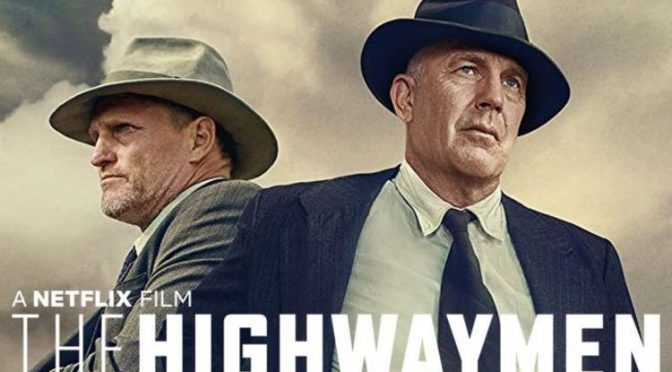This recent movie by John Lee Hancock seems like a radical departure from the 1967 counterculture film that elevated Bonnie and Clyde from grotesque criminals to sympathetic antiheroes in popular culture.
Film critics are nearly in lockstep, bleating that The Highwaymen is a step backwards from The Narrative so carefully cultivated over generations. Americans who identify as “conservative” praise the new film because it is more factually based and has a “law and order” slant to it.
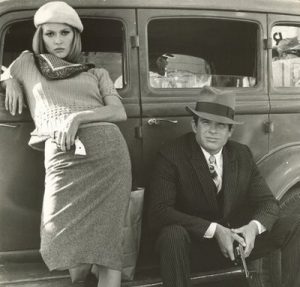 Both the critics and cheerleaders of The Highwaymen are stuck in a superficial analysis of the film, seemingly oblivious to how it fits into the context of where we are culturally and politically, and have conveniently missed or ignored hints from the film makers why The Narrative of Bonnie and Clyde has been turned topsy-turvy.
Both the critics and cheerleaders of The Highwaymen are stuck in a superficial analysis of the film, seemingly oblivious to how it fits into the context of where we are culturally and politically, and have conveniently missed or ignored hints from the film makers why The Narrative of Bonnie and Clyde has been turned topsy-turvy.
But context is crucial. To understand how both the Hancock and Penn films could spawn from the same cultural Marxist Hive Mind, and yet take such dramatically opposed perspectives, we have to go back to when the Baby Boomers were young radicals spitting on veterans returning home from Vietnam at the airports.
The Boomers were the most pampered generation in recorded world history. They showed their appreciation for the peace and prosperity they inherited by strangling the golden goose, ensuring that nobody else could enjoy the world they grew up in. Pop culture was just one of the weapons in their arsenal.
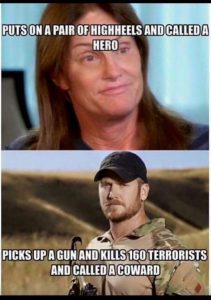 In the lost America they enjoyed, cultural icons like pioneers, farmers, cowboys, soldiers, inventors, entrepreneurs and fathers were accepted and promoted as role models that children should aspire to emulate. But this infuriated the cultural Marxists, who wanted a society like what we have now, where the “heroes” are degenerate celebrities, drag queens, pedophiles, other sexual deviants, illiterate street gangsters, sleazy lawyers, hate crime hoaxers, infanticidal feminists, grifters, serial killers and treasonous politicians.
In the lost America they enjoyed, cultural icons like pioneers, farmers, cowboys, soldiers, inventors, entrepreneurs and fathers were accepted and promoted as role models that children should aspire to emulate. But this infuriated the cultural Marxists, who wanted a society like what we have now, where the “heroes” are degenerate celebrities, drag queens, pedophiles, other sexual deviants, illiterate street gangsters, sleazy lawyers, hate crime hoaxers, infanticidal feminists, grifters, serial killers and treasonous politicians.
They couldn’t get the population to accept such a radical change overnight, though. Boiling frogs requires a gradual long march. You could conclude that Arthur Penn’s Bonnie and Clyde was one of the early experiments by the cultural svengalis, to determine just how big a step in that direction American moviegoers would accept. The film attempted to transform some murdering thieves from the Depression Era into sympathetic characters. Long story short: it worked.
There was a slew of films glorifying criminals and other “antiheroes” in the wake of Bonnie and Clyde. (You could argue that the trend never really stopped.) Some of the copycat flicks, like George Roy Hill’s Butch Cassidy and the Sundance Kid (1969) not only made the criminals sympathetic, but presented as almost non-human the people who attempted to serve justice. The Pinkerton agents tracking down the protagonists of that film are disposable, interchangeable empty suits, insignificant except for their employment by an “oppressive system” to harass the very human main characters portrayed by popular actors. They are nameless, faceless drones working for “the man.”
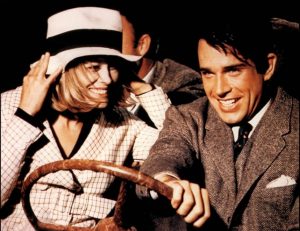 The movie critics, now foaming at the mouth because the Texas Rangers in The Highwaymen who stopped the glamorous bankrobbers are portrayed sympathetically, gush in masturbatory praise over the trailblazing, romantic, revisionist Bonnie and Clyde from 1967.
The movie critics, now foaming at the mouth because the Texas Rangers in The Highwaymen who stopped the glamorous bankrobbers are portrayed sympathetically, gush in masturbatory praise over the trailblazing, romantic, revisionist Bonnie and Clyde from 1967.
The makers of The Highwaymen are also fans of that Arthur Penn cinematic whitewash.
What has happened in the USA since 1967? To put it simply: the inmates took over the asylum. The communist agitators have been running our government for quite a while now, though they are considered “moderate” or “liberal” by the talking heads on Cux News because they have shoved the Overton Window so far left since taking power.
The “anti-establishment” radicals from the 1960s ARE the Establishment, now. Those who encouraged others to “question authority” now are IN authority. They have been for a while. Those who sought to destroy our institutions now CONTROL those institutions. Those who once complained about the messages in Hollywood movies now DESIGN Hollywood’s messages.
In a 180 degree turn from the Arthur Penn flick, Bonnie and Clyde were almost non-persons in The Highwaymen. Their treatment is shockingly reminiscent of the faceless Pinkertons in Butch Cassidy. Parker and Barrow’s brutality was emphasized, but nothing else was revealed about them (except a little backstory on Clyde’s history of thievery). We didn’t even get a good look at their faces until the end. To put it another way: they were just faceless murderers for nearly the entire film.
That about-face from the Vietnam-era counterculture antihero schtick might be confusing to some.
Know what else could be superficially confusing? The revisionist history on Clyde’s homosexuality. That was intentionally left out of the old movie, because society wasn’t yet conditioned to accept sodomy as normal or preferable. Even a lot of lefties at the time still considered it perverse.
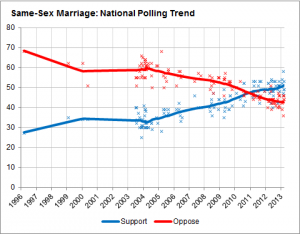 But now homosexuality is ubiquitously promoted as normal and moral–and you better not speak against it or you’ll either lose your job, be fined out of business, or in some cases, jailed. Audiences wouldn’t bat an eye at seeing Clyde depicted that way today, so why wouldn’t the film-makers ram it down our throats as usual, to perpetuate their familiarity-conditioning? They insert it absolutely everywhere else, even when it’s not relevant or necessary, let alone historically accurate. What a curious artistic decision, my dear Watson.
But now homosexuality is ubiquitously promoted as normal and moral–and you better not speak against it or you’ll either lose your job, be fined out of business, or in some cases, jailed. Audiences wouldn’t bat an eye at seeing Clyde depicted that way today, so why wouldn’t the film-makers ram it down our throats as usual, to perpetuate their familiarity-conditioning? They insert it absolutely everywhere else, even when it’s not relevant or necessary, let alone historically accurate. What a curious artistic decision, my dear Watson.
It all makes sense if you look at the cultural landscape today and how different it is from the Vietnam era. Again: the counterculture then is the Establishment now, and vice-versa. Now the ruling class must be presented as noble and heroic, while the everyman proles must be depicted as suspicious, unwashed, and dangerous. Outsiders, dissenters, and anti-establishment rebels need to be feared, doxxed, ostracized, demonized, financially ruined, and, the very moment it is acceptable to popular opinion: riddled like Swiss cheese by armed government goons.
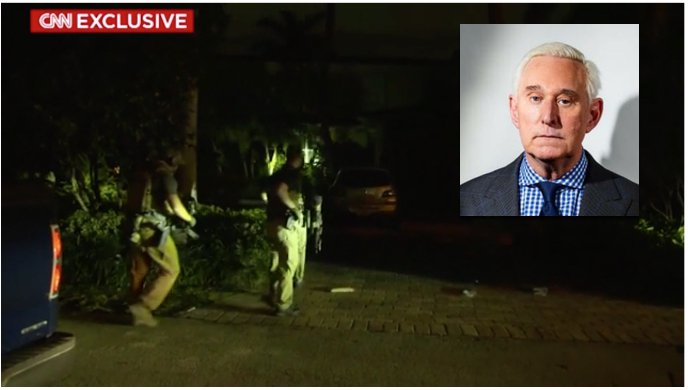
Like free speech and everything else, the fringe left’s position is opposite what it supposedly was before they secured ironclad institutional power.
As an adjunct of this, the film makers had to rewrite Clyde as heterosexual or they just couldn’t have brought themselves to show him for the murdering thief he was.
The Vietnam-era Bonnie and Clyde were stand-ins for the likes of Saul Alinsky and Jane Fonda, while the nameless, soul-less G-Men were stand-ins for Joe McCarthy and Barry Goldwater. The current-year law men (played by Kevin Costner and Woody Harrelson) are stand-ins for Eric Holder and John Brennan; while the faceless, soul-less bankrobbers are stand-ins for the likes of Donald Trump, Roger Stone and the average deplorable in Flyover Country.
The Highwaymen screenwriter John Fusco is another fan of Arthur Penn’s Bonnie and Clyde, and himself (in the interview linked above) implies a connection between Trump supporters and Bonnie and Clyde, confirming the reason for this paradigm shift.

